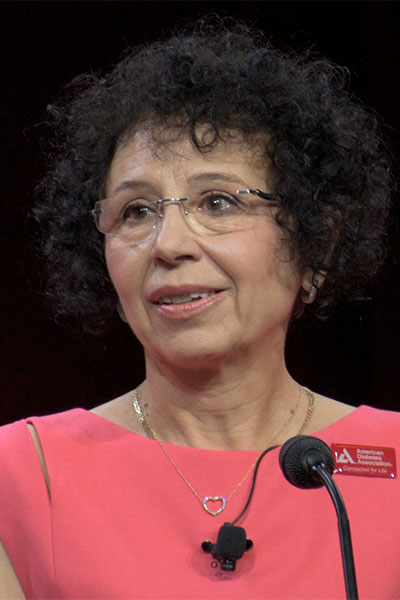
MD, PhD
The diabetes journey is as unpredictable for researchers as it is for patients. American Diabetes Association® (ADA) President of Medicine & Science Rodica Busui, MD, PhD, began her journey boiling urine at University Hospitals Timisoara, Romania.
“I was fortunate to do one of my residency rotations with Professor Gheorghe S. Bacanu, who had the vision of creating a diabetes clinic to provide more standardized diabetes care,” said Dr. Busui, now the Larry D. Soderquist Professor of Diabetes and Director, Clinical Mentoring, Development at the University of Michigan Caswell Diabetes Institute.
She traced her professional odyssey on Sunday in her address, My Journey in Diabetes Care, Research, and Complications, which can be viewed by registered meeting participants at ADA2023.org. If you haven’t registered for the 83rd Scientific Sessions, register today to access the valuable meeting content through August 28.
“We had no glucometers, no insulin pumps, no continuous glucose monitors, not even single-use syringes,” she recalled. “Our first task, as medical students and early trainees, was to boil the urine of our assigned patients to see if there was glycosuria to help dose their insulin. The devastating complications I witnessed during those early years was a turning point in my life. I would fight diabetes and help people lead a better life.”
A Fulbright Fellowship in endocrinology and metabolism at the University of Michigan changed her life again. Choosing to focus on diabetic neuropathy, Dr. Busui became immersed in the bewildering new world of academic research of cell cultures and animal models.
“I had no prior research training and no clue on what bench research really entails. I did not understand the complex experiments set in front of me, and I was afraid to work with rats,” she admitted. “Not surprisingly, they bit me quite a few times in the beginning.”
Work on oxidative stress and inflammation in the development of diabetic neuropathy produced her first oral presentation at the Scientific Sessions in 1996. Presenting to a packed room of more experienced scientists and researchers was a frightening and humbling experience, she remembered. It was also another turning point—she had found a home in diabetes.
Her fellowship at University of Michigan focused on cardiovascular autonomic neuropathy (CAN) and led to her first independent lab at the then-Medical College of Ohio, her first independent NINDS funding, and multiple publications. And she was selected as site principal investigator for Action to Control Cardiovascular Risk in Diabetes (ACCORD).
ACCORD established statins as standard of care for hyperlipidemia and helped take Dr. Busui back to the University of Michigan as an assistant professor. She was asked to develop a new clinical research program in diabetes and its complications.
“I set to work on the broad spectrum of diabetic neuropathies and other complications and building a clinical research program at Michigan,” Dr. Busui said. “I took the opportunity to leverage several landmark cohorts of people with both type 1 diabetes and type 2 diabetes, of which I was an investigator, to learn important lessons for diabetes complications.”
Dr. Busui joined the Epidemiology of Diabetes Interventions and Complications (EDIC) extension of the landmark Diabetes Control and Complications Trial (DCCT). Working with multiple colleagues, she demonstrated progression of diabetic peripheral neuropathy (DPN) and CAN over 30 years despite changing standards of care. Work on diabetes complications in youth found unexpectedly high rates of neuropathy and other chronic complications, particularly in young people with type 2 diabetes.
Other work has revealed new risk factors for diabetes complications, including social determinants of health, the mechanisms at work in metabolic memory to reduce CAN and DPN in later years, the roles of CAN and metabolic dysfunction as mechanisms of heart failure (HF) in diabetes, diabetes foot complications, and much more.
More recently, work on the differential outcomes between men and women with diabetes prompted the ADA to make it a priority in 2023 to fund research to help improve the health of women with diabetes across the lifespan.
“I was fortunate to be mentored by and work with amazing people and colleagues,” Dr. Busui said. “To all of you, and to the funding agencies, a heartfelt ‘thank you!’”